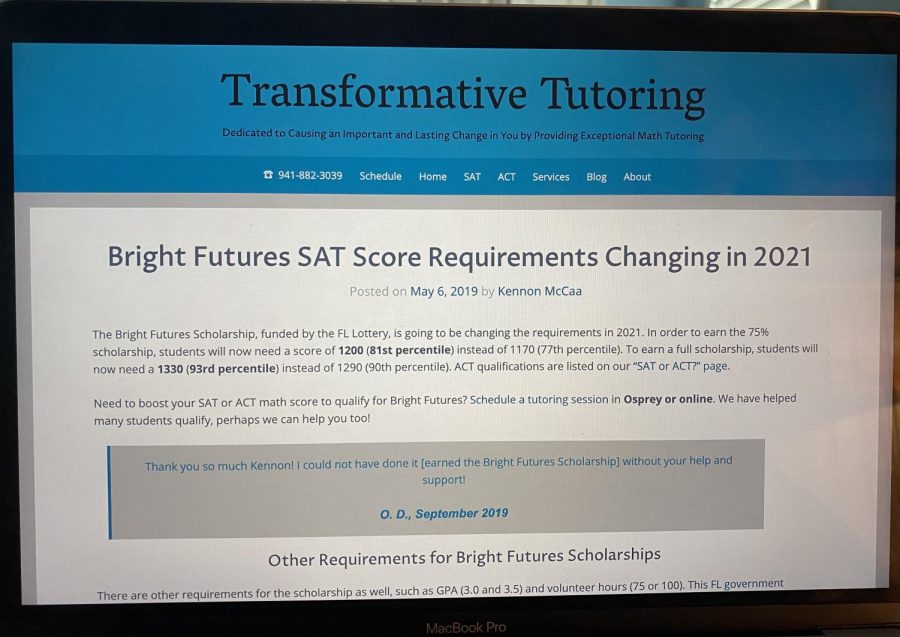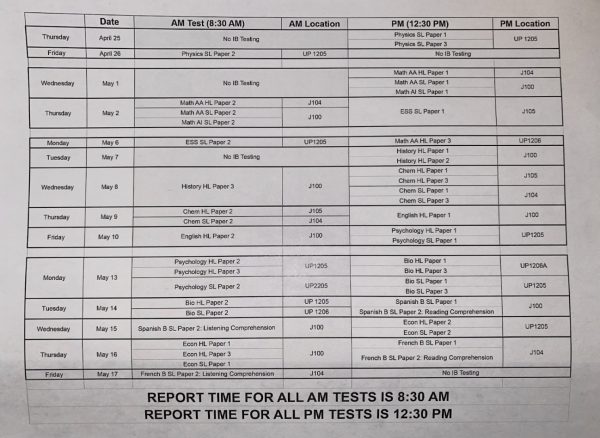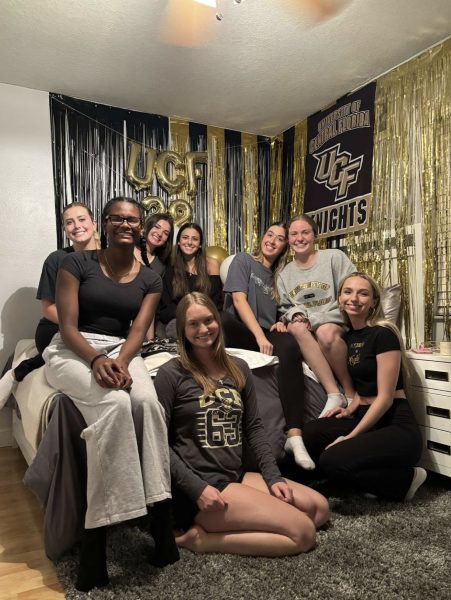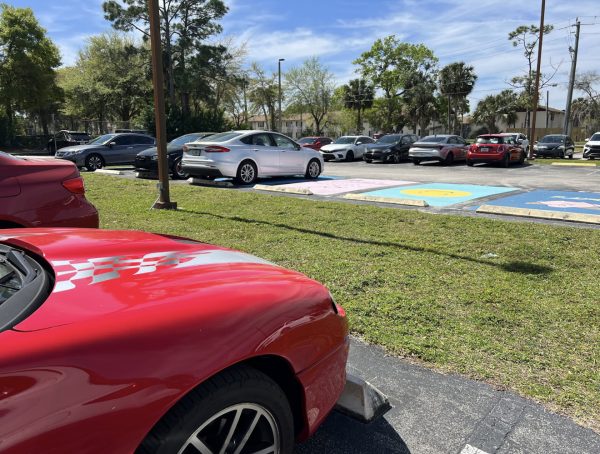Bright Futures May Not Be So Bright
Bright Futures is a scholarship program offered to students in the state of Florida with certain SAT/ACT scores, but this year there is talk of changing that.
April 16, 2021
For generations, the Florida Bright Futures scholarship program has provided thousands of students with the ability to attend college, awarding those with potential with grants and funds to receive higher-level education. Students can earn anywhere from 75% to full coverage of tuition at a college or university in Florida.
In March, however, State Senator Dennis Baxley proposed a total revamp of the scholarship program. Baxley proposed to limit the reach of the scholarship program, offering money only to students who choose a major that leads to direct employment.
“If you’re graduating from college and you’re unhireable, that’s not a very bright future,” said Baxley.
Baxley’s proposal and beliefs do make some sense. If graduating students pick majors or career paths with guaranteed employment, there will be no stress or excessive job-hunting after secondary education.
Freshman Aryan Akula expresses: “I agree that the bill will help students who actually work for their bright futures should get it and people who just take the easy way should get it but there should be like levels for the better and worse classes taken.”
However, thousands of students and parents alike are protesting the initial bill. Baxley’s proposal would undoubtedly decrease the number of students who are able to qualify for the scholarship program, students who have worked hard for four years and suddenly do not qualify.
“I really don’t think the major have, should have, any bearing on how much Bright Futures scholarship you would be awarded,” said Ellen Barnett, a mother of both a high school and university student. “I just don’t want to see students pigeonholed into certain majors simply because that’s going to allow them to afford college.”
Many students argue that the bill is subtly trying to tell them what to study in college. They express that Bright Futures is a merit-based program, and the major restriction in the bill takes away the hard work. Moreover, many interesting majors are now at a disadvantage. Students interested in liberal arts are less likely to qualify than STEM-based majors, considering that many artists are not directly employed after college in comparison to someone who majored in engineering.
For this specific reason, many liberals or Democrats in Congress outright opposed the bill. Democrats believed that the bill “smacks of authoritarian tactics… SB 86 supporters present a false choice between liberal arts and digital skills.”
“It’s almost like they’re trying to tell us what to study and that’s pretty unfair,” said Lorenzo Urayan, a senior at Lake Nona High School in Orlando and prospective art major. “The whole thing about Bright Futures is it’s merit-based, we’ve all worked hard for this.”
Yet, it is not only students with the mentioned majors in the proposal that are at a disadvantage. SB-86 reduces funding for students who have taken AP classes through College Board or Dual-enrollment throughout high school. This definitely takes away the appeal of Bright Futures. As a merit-based program, students are expected to have above-average grades and extracurriculars, which for many involve college or AP classes. This aspect of the bill does not bode well for future graduating classes.
“The whole bill seems really oppressive, and I think that it is definitely a negative thing. People who meet the criteria should get their money. Just because they chose to pursue a different major that doesn’t fall into their lists shouldn’t be a reason for them to not qualify for the scholarship.”, believes Junior Kamala Sairaman.
The outlook of future Florida student generations does not look too good. Bright Futures has been an important stable in regards to funding for college. With these new amendments, many students are losing trust and dependency on the scholarship program. What will be the fate of Bright Futures and future graduating classes in Florida?



































